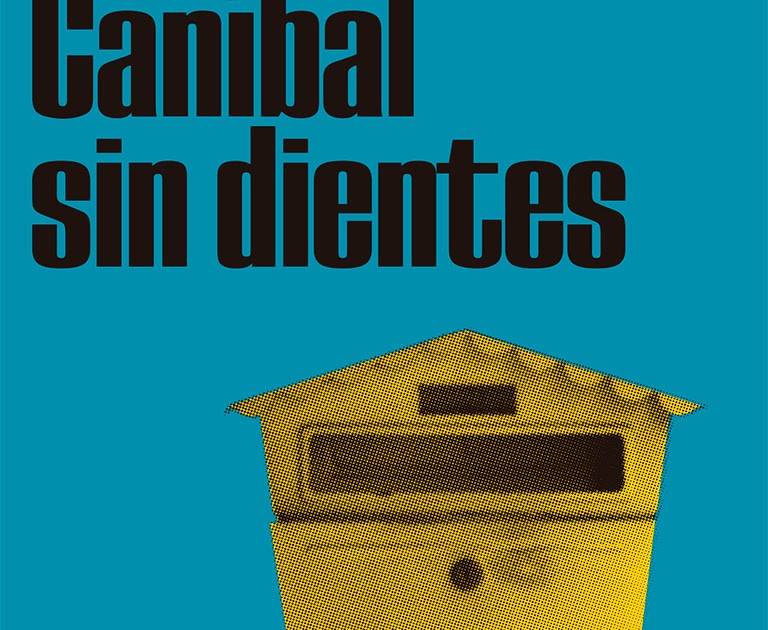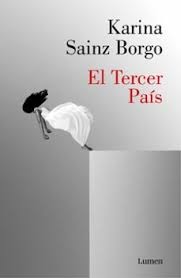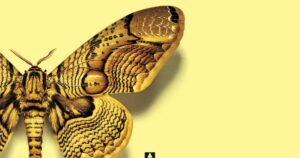
Original language: Español
Year of publication: 2023
Valuation: Recommended (although not for everyone)
Some time ago I reviewed The applicant, debut of the Cantabrian Santiago Mazarrasa. It seemed to me a promising work whose execution caused it to be difficult. Well, my reading experience with Toothless cannibal, the author’s second novel, has been completely different from what I had with its predecessor. And this one, like that one, requires that we enter into the game it proposes, and uses a series of elements that are difficult to assimilate. However, or that is the impression I have had, it makes things easier for us.
Because although Mazarrasa’s marked personality remains and the style, tone, themes and characters that, judging by his presence in The applicantinterest the author, also, in Toothless cannibal there is an effort to reconcile their artistic pursuits with entertainment. Certainly, it continues to present a multitude of abstract passages, sometimes pretentious language and a somewhat artificial plot, but the whole excuses this type of narrative decisions.
Likewise, there are meritorious sections in these pages that I must claim:
- The premise. It is quite suggestive: a successful writer receives a letter and a manuscript from an admirer whose implications are extremely disturbing.
- The protagonists. Complex, with personalities full of shadows and oblique interactions.
- Prose. He knows how to emulate the sinuous verbiage of an obsessive man, capture descriptions of astonishing plasticity or delve into the most remote psychological intricacies. As an example of its quality, I will quote this phrase from pages 129-130: «He enters the bathroom, wets his face in the sink and with the water he washes away the terror, as if it were a stain and not an irreversible wound. .»
- The achieved fragmentary structure. It keeps the reader hooked and provides information as appropriate to the story.
- The reflections. I find those that revolve around literature, writing or the relationship between author-work-reader particularly stimulating.
On the negative side, I would insist that Cannibal sin teeth It forces you to enter it so you can appreciate it. Despite which, I repeat, Mazarrasa has managed to make his new proposal as demanding, ambitious and risky as The applicant without falling into the hermetic or excessively intellectual. By this I mean that, while this novel is not for everyone, it will richly reward those who dare to give it a chance.
STUFF: First of all, let me ask you something that may be stupid, but I couldn’t help but notice. Why did you not use the diminutive of your name to sign this novel, unlike with the first?
S.M.: It was a decision by the publisher. Seen with perspective, it would seem that from Santi to Santiago there is a qualitative leap, in literary maturity or something similar, but I think it is an accidental question and, if not, aesthetic.
STUFF: Do you think your narrative has a unique stamp? Having read both of your published works, I would say yes. If you agree with me, how would you describe that seal? A mixture of careful and philosophical style, a dark and depressing tone, a suffocating atmosphere, obsessive characters, meta-literary overtones and autobiographical fragments, perhaps?
S.M.: I thank you very much for the question, because I do not have a clear answer, and I also thank you for your opinion, because it reconciles me with the dilemma with which I have lived for the last two years.
I started writing Toothless cannibal before having published The applicant and it was very clear to me that I could not repeat writing, that I could not play the same game in two novels that asked for completely different things. This confronted me with two questions: on the one hand, it could happen that I only knew how to write literature in the manner of Caius in The applicant and, therefore, that he was not a writer, but only a character. On the other hand, there was the risk of moving too far away from my own writing until it turned into a small monster made of standards, clichés and formal certainties, which is equivalent to not being a writer but a machine. So, I suppose, between the machine and the character I had to achieve a balance that made the author of the novel recognizable in the text.
I am interested, it is true, in the relationship between philosophy and literature, because both are made from the same raw material, language, which is the only material of which existence is composed. Everything else is, bad and fast, biology. If language, which lacks support, is insufficient and unstable, is the source of a properly human existence, existence is also unstable, insufficient and lacks support. In this space of deficiencies, literature has to play its part. At least, the one that interests me.
Furthermore, I believe that the world as it is has plenty of apologists. Someone said that thinking is always thinking against something and I apply this maxim to literature. That’s why, perhaps, I tend toward pessimism.
STUFF: If I’m honest, The applicant I thought it was an interesting but somewhat leaden debut. Whereas in Toothless cannibal I thought I saw an effort to make a narrative artifact more conciliatory with the reader. Let me explain: your second novel does not give up your personal voice and style, but it is more entertaining plot-wise and varied on a formal level. Is it possible that you conceived it with those of us who were going to taste it in mind and that, on the other hand, its predecessor was a work that you wrote above all for yourself?
S.M.: Before writing The applicant I had tried other novels, but had never published them, so I was doing something that had no readers. In this sense, it was a personal challenge, since I had to prove to myself that I could finish a work and that the work was a meaningful whole. However, when I wrote Toothless cannibal, the story demanded a more fluid narration, a narration, perhaps, more traditional, something I had to check if I was capable of doing. If, by the way, this makes it a more accessible work, it is welcome, of course.
In any case, the fact that one is more accessible than the other responds to the demands of the idea behind each book. Almost always, there is an intuition that guides all decisions and that I can only explain to myself after the fact. The applicant It was an experiment or, rather, an attempt to build a story with the minimum narrative elements. The theme of the book required a lack of narrativity, the same one that the protagonist suffered from. At least I tried.
Toothless cannibal, in its own way, is also an attempt, half metaliterary, half traditional narrative. It is a story about literary ambition, but also a story about messages that do not arrive, about messages that overlap and messages that oppose each other. That’s why I chose to narrate from three places, fragment the narrative and make the resulting fragments collide. As I told you before, I didn’t really choose it to be that way, I think it was that way because the topic demanded it. Now that I think about it, I see the point.
STUFF: I’m sure there is a lot of work behind Toothless cannibal. How long did it take you to write this second novel? Conceptualize it, write it up and correct it, I mean.
S.M.: The first fragments of Toothless cannibal They date back to 2018, when the novel was a private game. In 2019 I started working more seriously and by the end of the year I already had a first draft. A draft that, of course, is nothing like the novel I have published. Since then, except for the time I spent reviewing and correcting The applicant, I would work two or three months straight until finishing a new draft and abandon it for a few months to let it breathe. In 2021 the novel was finished and, from then until the beginning of this year, already working together with Altamarea, I have reviewed and corrected draft after draft.
I tend to be very obsessive about writing, sometimes too much so. In this novel there is an initial dedication that refers to this obsession. Deep down, although I could continue correcting, I am very glad that the book is already published, because that means that it has escaped and that I can’t do anything for it, neither make it better nor worse.
STUFF: In Toothless cannibal You attack, ironically, against practically the entire literary sector: the writers, editors and readers, the presentations, the creative workshops, etc… In your opinion, what is the current Spanish panorama like?
S.M.: Honestly, I do not have a formed opinion, much less an expert, about the publishing market. I have an opinion, but I don’t think it’s new: the publishing market and literature are two different sports. In the novel, the opinions of both protagonists are very vehement, but above all I am interested in whether they can be universalized. The difference, and dependency, between literature and the market can be extrapolated, almost without nuance, to any area and this conflict animates, perverts and confuses all those involved, including us.
To answer your question more directly: you have to be very careful with writers and their aspirations, very careful with editors and their accounts, and very careful with readers and their demands.
STUFF: Are you currently writing anything? Can you give us details?
S.M.: I have been working on a third novel for some time, since approximately 2020, when I wrote the first chapters of several stories around a single event that will be decisive in the lives of a group of friends. I am very interested in friendship because it is a weapon against the passage of time, a refuge from crises and, in many cases, an escape route. I don’t know what I’ll do, but I want to test it against an accelerated world, an existence mediated by digital connections and the disappearance of the soil that sustains us and on which we build our houses.
Source: https://unlibroaldia.blogspot.com/2023/11/resena-entrevista-canibal-sin-dientes.html


